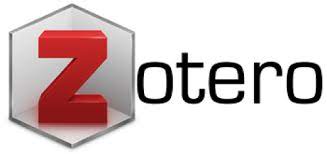PENYESUAIAN DIRI DAN KONFORMITAS TERHADAP ETOS BELAJAR MAHASISWA DALAM PEMBELAJARAN DARING
DOI:
https://doi.org/10.33557/jpsyche.v16i01.1751Keywords:
self-adjustment, peer conformity, learning ethosAbstract
This study aims to determine the relationship between self-adjustment and peer conformity with students' learning ethos in bold learning. The hypothesis proposed in this research is that there is a relationship between self-adjustment and peer conformity with students' learning ethos in bold learning, secondly there is a relationship between self-adjustment and students' learning ethos in courageous learning, and so on there is a relationship between peer conformity and student learning ethos in dare to learn. The population of this study were students at Bina Darma University Palembang with a total of 320 active students who were determined by adapting Isaac and Michael's table based on an error rate of 5% with the distribution of test subjects to 200 students while the remaining 120 were as samples in the study. Data collection was obtained by using a probability sampling technique, namely simple random sampling. It was stated simply because in selecting sample members from the population it was carried out randomly without regard to the existing strata in the population. The results of multiple regression research using the SPSS program show a correlation coefficient (r) of 0.915, a coefficient of determination (R Square) of 0.837 and a value of p = 0.000 p <0.05. The results of the analysis show that there is a very significant relationship between self-adjustment and student learning ethos in online learning.
References
Biro Kumunikasi dan Layanan Masyarakat. (2020) diakses dari https://www.kemdikbud.go.id/main/blog
Desmita. (2014). Psikologi Perkembangan Peserta Didik. Edisi ke 5. Bandung: Remaja Rosdakarya.
Novaliendry. (2013). Multimedia Interaktif Instalasi PC. Jurnal Teknologi Informasi & Pendidikan, Vol.94 No.1
Nurjan, S. (2015). Psikologi belajar. Purwosari: Wade Group
Prayitno. (2017). Dasar teori dan Praksis Pendidikan. Jakarta: Grasindo
Pratama, M.A. (2020). Pengguna Internet Indonesia Hingga Kuartal II 2020 Capai 197Juta. https://money.kompas.com/read/2020/11/09/213534626/pengguna-internet-indonesia-hingga-kuartal-ii-2020-capai-1967-juta-orang.
Santrock, J.W. (2017). Life-Span Development. Jakarta : Erlangga
Sugiyono. (2017). Metode penelitian kuantitatif kualitatif dan R&D. Bandung: Alfabeta
Szpunar, K. K., Moulton, S. T., & Schacter, D. L. (2013). Mind wandering and education:From the classroom to online learning. Frontiers in Psychology.
Trisnawati, D.D. (2013). Membangun disiplin dan tanggung jawab siswa SMA Khadijah Surabaya melalui implementasi tata tertib sekolah. Jurnal kajian moral dan kewarganegaraan.Vol.2 No.1
Winkel, W.S., & Hastuti. M.M.S. (2020). Bimbingan dan konseling di institusi pendidikan. Yogjakarta: Media abadi
Downloads
Published
Issue
Section
License

Jurnal Ilmiah Psyche by http://journal.binadarma.ac.id/index.php/jurnalpsyche is licensed under a Creative Commons Attribution-ShareAlike 4.0 International License.








